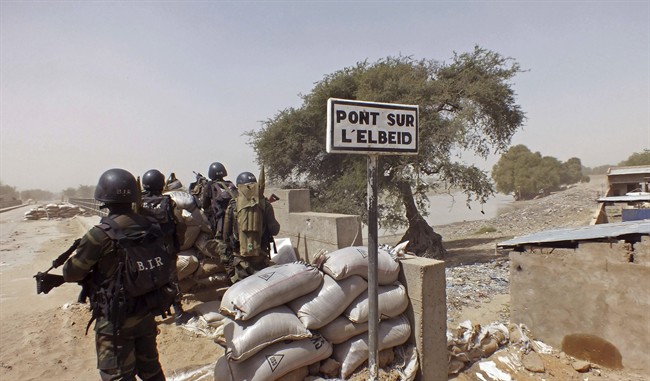JOHANNESBURG – More than 120,000 Nigerians likely will suffer “catastrophic” famine-like conditions caused by Boko Haram’s Islamic uprising, among 11 million confronting severe food shortages this year, according to a new U.N. report.

The report from the Food and Agriculture Organization predicts that Africa’s biggest humanitarian crisis likely will deteriorate during the “lean” food season between June and August in northeast Nigeria.
READ MORE: Nigeria mistakenly bombs refugee camp, over 100 killed
Worst affected is Borno state, the birthplace of Boko Haram, which may hold 65 per cent of those “expected to face famine conditions.”
U.N. agencies have reported that children already are dying in the region and some half a million face death if they don’t get help.
WATCH: Hugs, tears of joy as 21 schoolgirls abducted by Boko Haram 2 years ago reunited with families

Corruption and conflict between the government and aid agencies is compounding the crisis. Officials are investigating reports that local government agencies are stealing food aid.
Despite the crisis, Nigeria’s cereal production went up by about 5 per cent in 2016, the report said, even though the Boko Haram uprising has forced hundreds of thousands of farmers off their land.
The report credited increased government support for agriculture, above-average rainfall and increased commodity prices.
READ MORE: Boko Haram forced out of last enclave, says Nigerian president
But Nigeria remains a “food-deficit country” with cereal imports, mainly rice and wheat, forecast to exceed 7 million tons this year, it said.
Nigeria remains the world’s biggest importer of rice, indicating a failure of government efforts to reduce dependence on food imports amid a crushing shortage of foreign currency caused by low global prices for oil.
Thousands of Nigerians marched this week to protest growing hardship brought on by high food prices, poverty, corruption and unemployment, among other issues.
Vice-President Yemi Osinbajo told them he feels their pain but life will get better. “With complete focus on improving the economy every day, the recession will soon be history,” he said in a statement Tuesday, without elaborating.



Comments